Germany is one of the densest populated countries and therefore places to numerous cities. The countries capital Berlin is one of the famous ones. People from all over the world have been flocking to Berlin for years. No wonder, because the city enchants you with its very own charm. Every district in Berlin is different and offers you many highlights. How about a shopping trip along Friedrichstraße, a tour of the many cafés and second-hand shops in Prenzlauer Berg, or a Sunday stroll through Mauerpark?
Germany
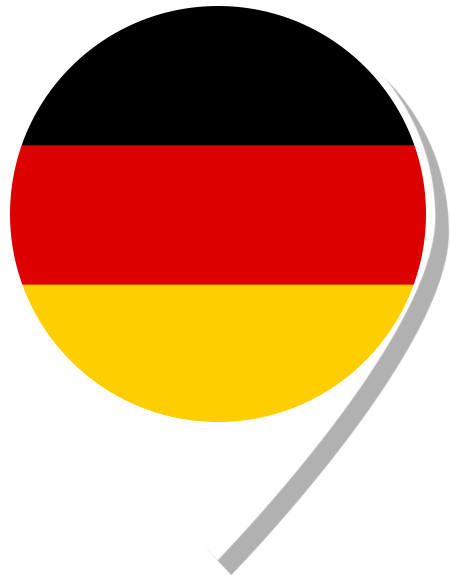
Varied culture, fascinating nature from North Sea to Alps and exciting cities
Germany, located in the heart of Europe, is an ideal destination for any kind of holiday. Whether an active, city, cultural or educational holiday, there is something for everyone. Germany is divided into 16 federal states and each region has its own diverse exciting holiday destination. Visitors who love the beachside can aim for the northern areas and its’ famous islands. Nature lovers and hikers should head for the south of the country. Bavaria is home to numerous mountains, including Germany’s highest mountain, the Zugspitze. Germany also has countless castles and palaces and the Rhine/Moselle region with its vineyards is just as worth seeing. Culture lovers do not come too short in Germany. There are plenty of destinations; the most popular cities are Berlin, Hamburg, Dresden, or Munich. Imposing buildings such as Cologne Cathedral or Aachen Cathedral are even on the UNESCO World Heritage List and should be on a travellers list.
Not sure where to go?
GOOD PLACES TO VISIT
Explore destinations that were awarded for their sustainability efforts
GOOD BUSINESSES
Discover accommodations, restaurants, shops and attractions that are commited to responsible development

Historic and cultural heritage
In addition to the beaches, take the opportunity to visit the Casa de Taipa Museum and the Church of São Miguel do Arcanjo.
PROMO CODE:
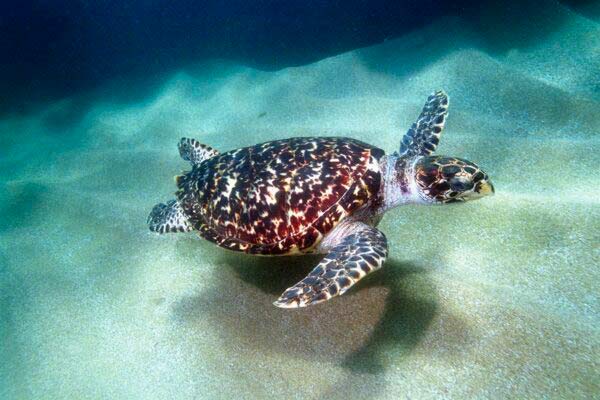
Historic and cultural heritage
In addition to the beaches, take the opportunity to visit the Casa de Taipa Museum and the Church of São Miguel do Arcanjo.
PROMO CODE:

Historic and cultural heritage
In addition to the beaches, take the opportunity to visit the Casa de Taipa Museum and the Church of São Miguel do Arcanjo.
PROMO CODE:
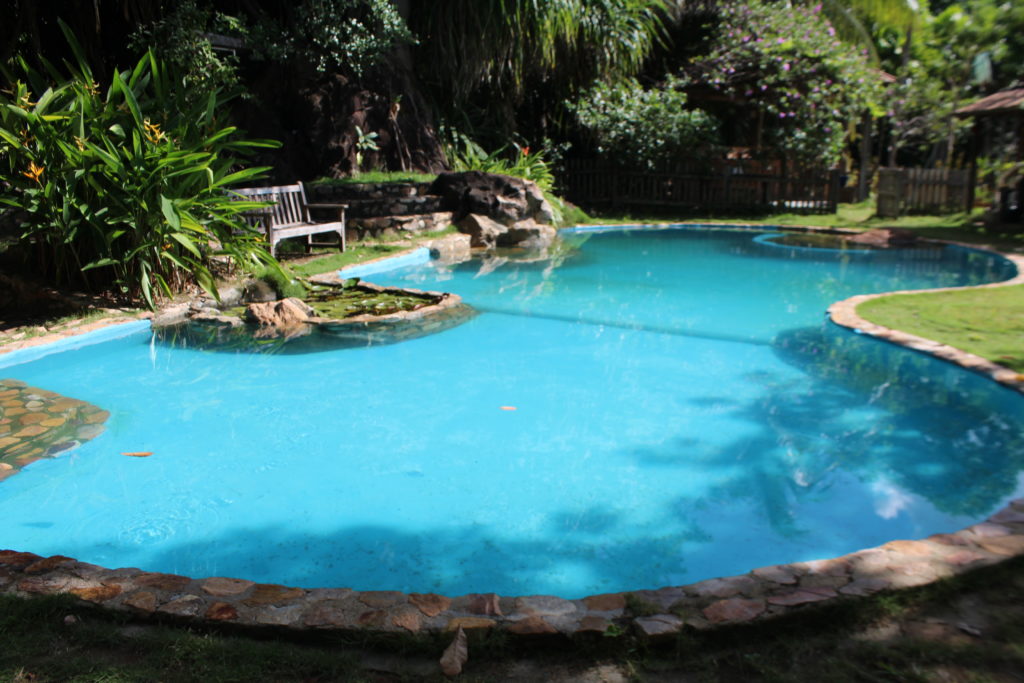
Historic and cultural heritage
In addition to the beaches, take the opportunity to visit the Casa de Taipa Museum and the Church of São Miguel do Arcanjo.
PROMO CODE:
GOOD PRACTICE STORIES
Get inspired with stories from places and people that are acting for a fair and responsible tourism

Apodi
The proposal of the Pedagogical Tourism project is to promote environmental awareness among students through pedagogical practices in tourism, providing a direct interaction with the theme of tourism in schools, as well as working on Environmental Education in a continuous and permanent manner, as stipulated by the PNEA – National Policy for Environmental Education (law 9795/1999). Additionally, it aims to stimulate Environmental Education as a cross-cutting theme through a comprehensive set of actions, as it cannot be addressed in isolation. Sensitization provides the locals with knowledge and a sense of belonging to the tourist attractions in the area.
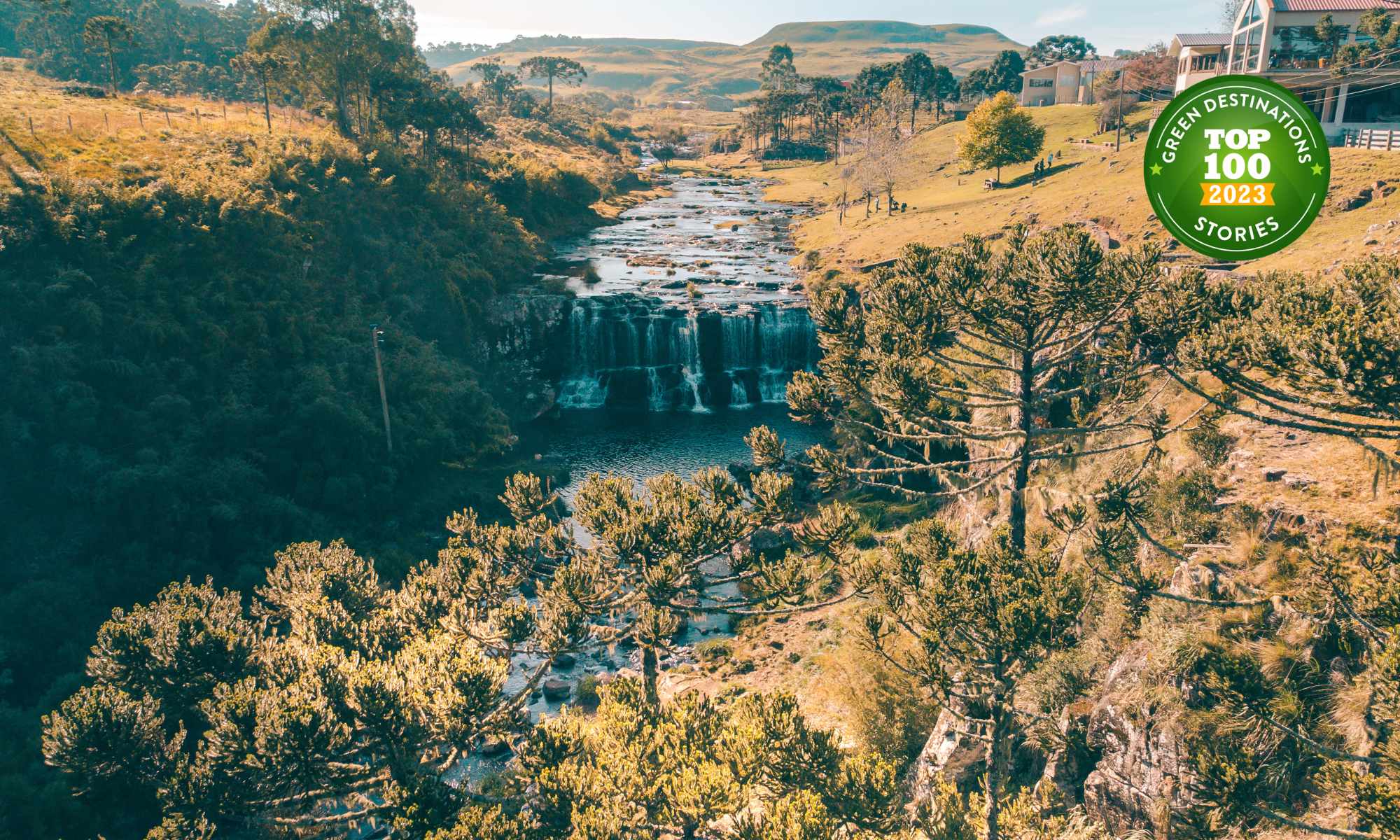
Bom Jardim da Serra
When tourism began to be developed in Bom Jardim da Serra, two accommodation projects were pioneers in structuring this sector: the Santa Rita farm and the Serra do Rio do Rastro Ecoresort. Structured in the late 1980s and early 1990s, the hotels in the mountains began to gain prominence and contribute to the development of a new local economic activity, further boosting the region. In that cycle, other economic segments feared that new ventures would displace labor, especially in fruit growing. The local community was not fully convinced of the benefits of tourism for the city, however, over time, there was a gradual change in perception. The great challenge of the projects was aimed at consolidating the city as a destination sought after by tourists, requiring great efforts from entrepreneurs for proper management, integration for the search for financing alternatives and other adaptations to market fluctuations, especially in the periods of seasonality.

Bombinhas
The Sea School is a program of the Municipal Department of Education of Bombinhas, aimed at public school students, during after-school hours. Since 2017, the ecological and tourist aspects of Bombinhas have been explored as part of the pedagogical proposal of the Sea School. Children and teenagers, from the fifth year of elementary school on, participate in a broad, creative, and engaged training, which includes the main local socioeconomic aspects, including artisanal fishing, mariculture, and tourism. This is stitched with ancestral knowledge through the presence of masters in various arts and crafts, such as the making of fish nets and baskets, and gastronomy. Swimming classes, environmental education, and alternative income generation complete the teaching-learning process focused on sustainability.
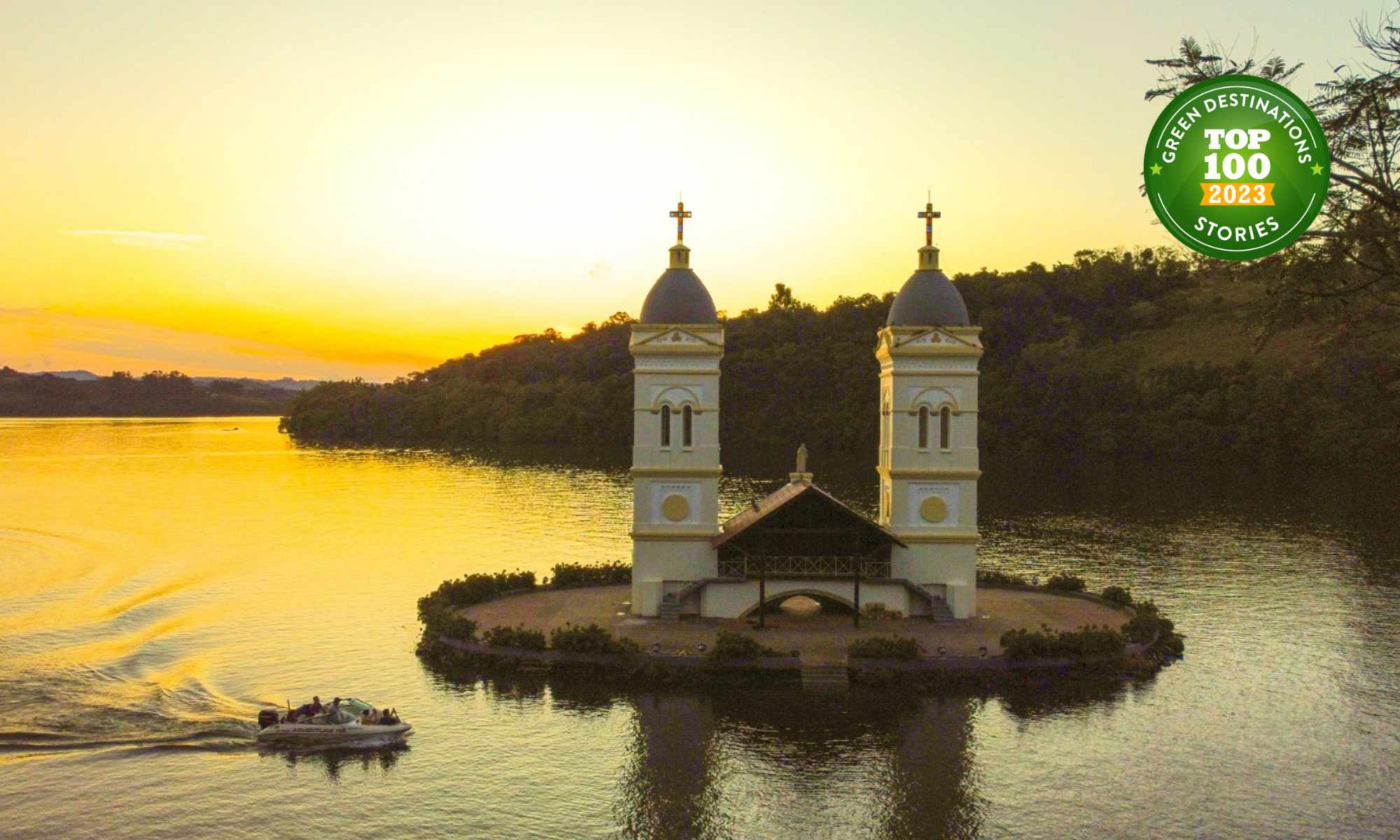
Itá
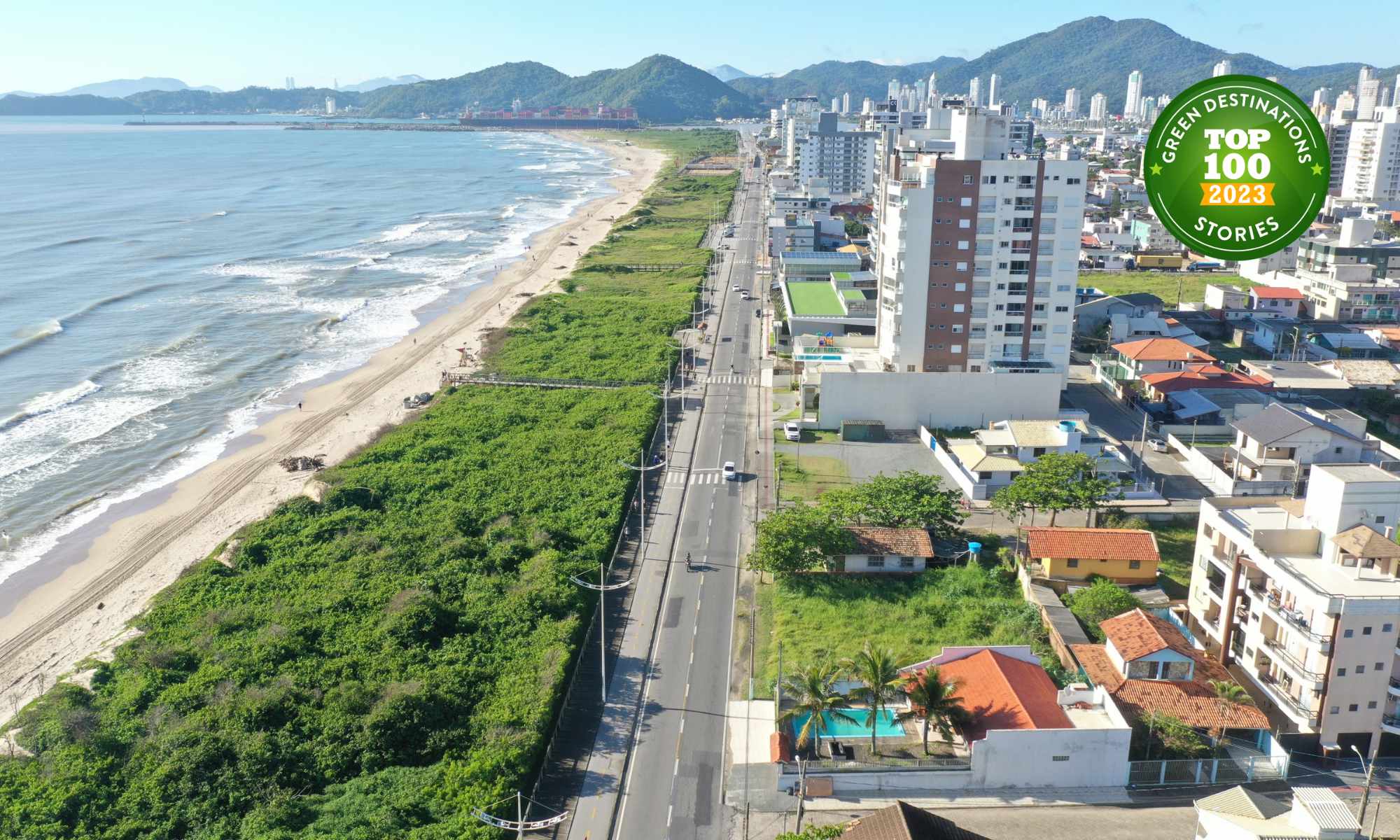
Navegantes

São Miguel do Gostoso

Tibau do Sul
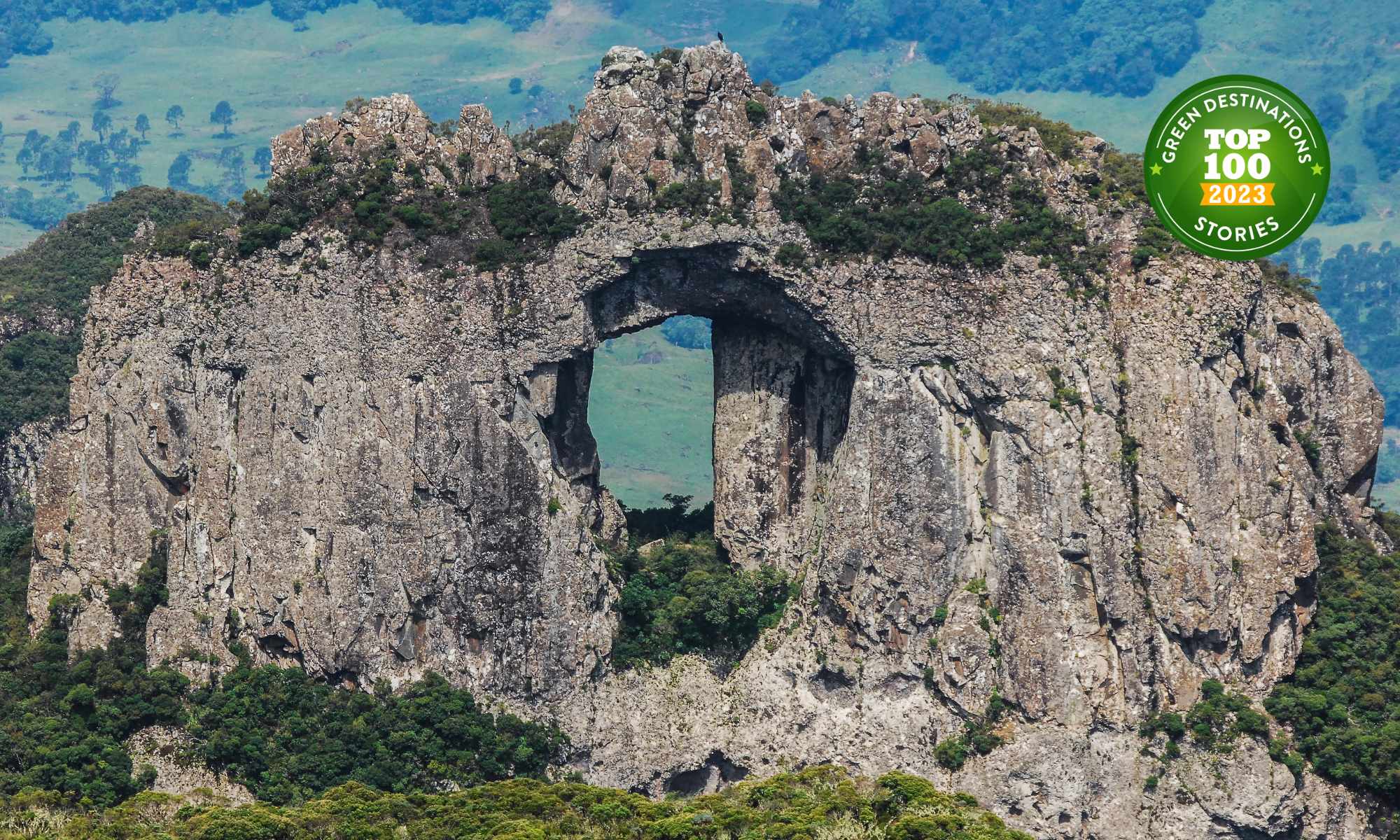
Urubici
Other destinations

Bad Grund
Surrounded by the mountainous landscape typical for the Harz, the spa town Bad Grund offers a healthy climate and the starting point for many adventures in the surrounding forest. Within this lush and green environment, nature’s diversity can be found in its purest form – in fact, tree species originating from every continent can be found in this vibrant natural area.
Sustainability
The German Federal Government has developed a comprehensive sustainability strategy based on the 17 Sustainable Development Goals adopted by the United Nations in 2015. Germany offers guidance with the help of the practical guide “Sustainability in German tourism – requirements, recommendations, implementation aids”. This was created by the German Tourism Association (DTV) together with the Federal Ministry for the Environment, Nature Conservation, Building and Nuclear Safety and the Federal Agency for Nature Conservation as well as BTE Tourismus- und Regionalberatung.
Photo: The Moselle Valley
Travel tips from our editors
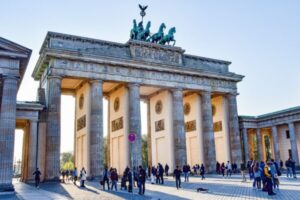
Get to know the German city life
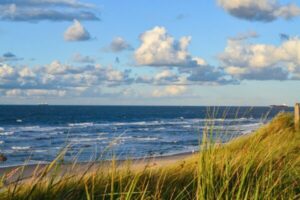
Check out the German beachfront
Germany might not lay within the tropic climate zone but still has to offer long and fine sandy beaches, a picturesque dune landscape, and crystal-clear water. The Baltic and the North Sea islands offer everything you need for a perfect holiday by the sea. Windsurfers, kite surfers, and sailors will find the ideal wind conditions in many places.

Join traditional celebrations
Each German region has its’ own traditional celebrations. Famous ones are the carnival events in springtime where everybody dresses up and enjoys the parades with friends on the streets. But autumn’s celebration shouldn’t be missed when everybody dresses up in their dirndl and lederhosen to celebrate the Oktoberfest in Munich, Bavaria. Germans like to celebrate and always warmly welcome everybody to join them to dance in one of the many marquees.
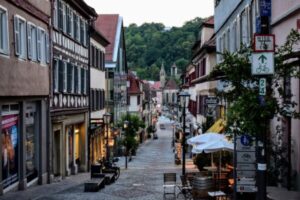
Waste separation for recycling
Germany is well advanced with its recycling schemes and it is included in everybody’s lifestyle. There is the usual waste separation system which is divided by colours:
BROWN – organic waste
BLACK – domestic waste
BLUE – paper
YELLOW – plastic packaging (marked with a green point, otherwise BLACK)
For plastic and glass drinking bottles as well as drink cans, it is the norm to return them to supermarkets. This is called a “Pfand” system, similar to claiming back a deposit.
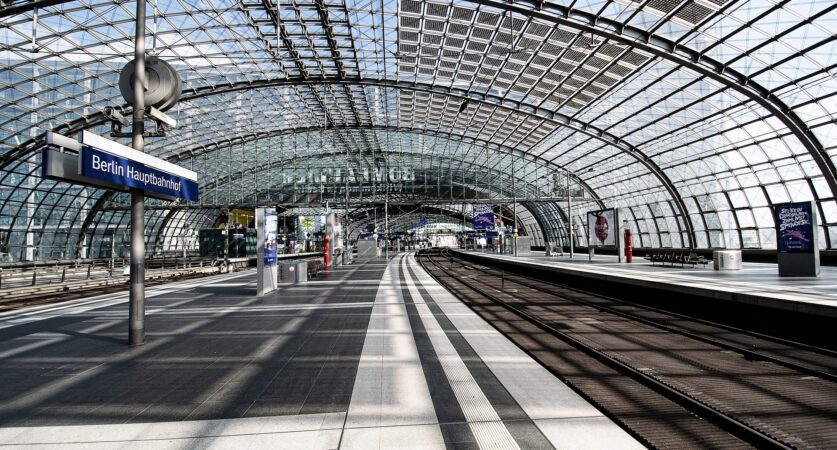
Getting there
Germany is thoroughly connected to its’ neighbour countries. The infrastructure is well organised and one can reach Germany by:
Train – Deutsche Bahn trains can be boarded from its neighbour countries’ cities and can be used to travel to any township throughout the country. Deutsche Bahn gives the customer the option to offset carbon emissions.
Coach – The German company Flixbus offers intercity bus service all throughout Europe.
Air – Airports all over the country facilitate international connections. Carbon footprint can be offset as well.
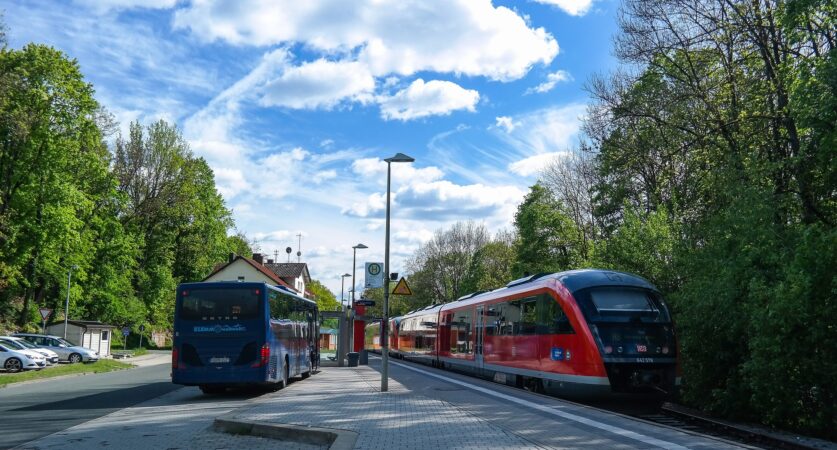
Getting around
German towns and cities are well connected and travellers have the choice to choose between:
Train – Deutsche Bahn or smaller services such as Flixbus-Train transport people around the country.
Bus: Coach and bus travel is a great option. Flixbus, IC Bus or Blablabus commute between cities and towns. Each city or town has its own regional bus transport system in place.
Car: Germany has a vast network of well-maintained roads. The great connected ones are: Highway (Autobahn) or countryside motorways (Landstraße).
Carsharing: Germany is known for its great options to share a ride. The most popular one is called Blablacar.
Bicycle: Bicycle lanes can be found anywhere you go (marked on site of the road). Furthermore, Deutsche Bahn offers to easily commute by taking your bicycle with you on the train.
Tourism & People
Germany is offering responsible tourism and seeks to foster respect for human rights and the introduction and enforcement of minimum social and environmental standards. The country is doing its’ best in being as accessible, inclusive, and barrier-free as possible. The German Tourist Board gives information on things that people travelling with special needs need to know. That information includes the national rail network, Deutsche Bahn’s dedicated mobility hotline, barrier-free, cities, etc.
Photo: Munich, English Garden
Nature & Wildlife
Germany is not just famous for its rich history and vibrant cities; it’s also a country blessed with diverse natural beauty and wildlife. The Black Forest, with its dense forests and rolling hills, offers hiking and tranquility. In Bavaria, the Bavarian Forest National Park provides a glimpse of pristine wilderness. Germany’s extensive network of national parks, biosphere reserves, and protected areas showcases its commitment to conservation. You can spot red deer, wild boar, and even lynx in these regions. Birdwatchers will be delighted by the variety of avian species that call Germany home. The country’s landscapes, from the North Sea coast to the Bavarian Alps, are filled with natural wonders, making it an ideal destination for nature enthusiasts.
Sustainability Recognitions
Nine destinations have been recognized for considerable efforts in responsible and sustainable tourism in the Netherlands:

The German Sustainability Award honours businesses, local communities and cities that are particularly successful in meeting environmental and social challenges with their products and services and thereby use sustainability as an economic opportunity.
German Council for Sustainable Development:
“Sustainable development means placing environmental aspects
on an equal footing with social and economic aspects.
Sustainable management thus means that we must leave sound ecological,
social and economic structures behind for our children and grandchildren.
None of the three is possible without the other two.”
Visit other destinations nearby?
Get in touch
Support
We are a multicultural, creative and dedicated team working to promote sustainable tourism. Join us in our fight against the climate crisis, single-use plastics and over-tourism!
